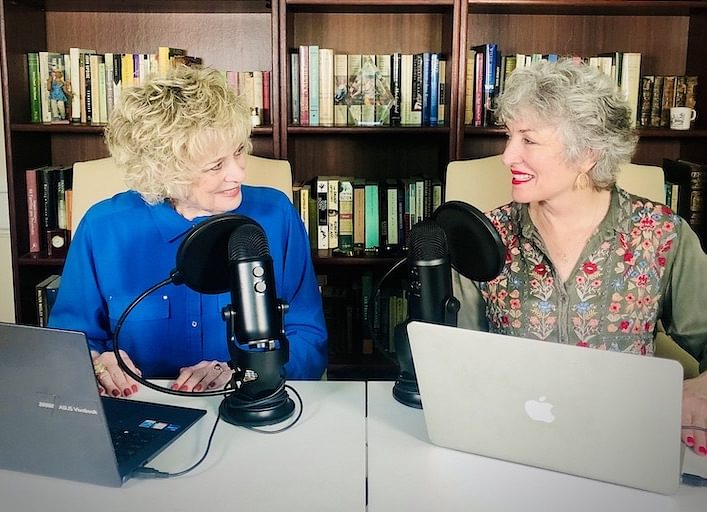
Welcome to Mental Health: Hope and Recovery.
What made Valerie Milburn and me think we could create a podcast about mental health? Especially when we were absolute neophytes about podcasting. In fact, I had never listened to one. Yet we forged ahead and created MHHR at the request of a friend who was building a new platform called MindBodySpirit FM. So how did we find the wherewithal to say "Yes"? What made us think we could contribute something original to the concepts of hope and recovery? It's turned out to be a pretty good story. The success of our podcast has far outstripped our expectations. Well, actually we didn't have any expectations. We just wanted to help people with mental health conditions and, if possible, reach a larger audience.
So how did we meet? Valerie and I met nine years ago at a training weekend for National Alliance on Mental Illness in Austin. We both had fought and overcome severe, chronic mental illnesses. At the time, we were in very different places. Valerie was five years sober and believed that her story of recovery could be told to a larger audience. She was ready to relinquish the shame of stigma that had silenced her in revealing her mental health issues. I had moved back to Austin after 40 years in New York City--miserable, lost, untethered in an unfamiliar world. But I was determined to take action, and that began my journey. Little could we have imagined the impact our relationship and volunteer work would have on the trajectory of our work and our lives, much less our own podcast.
Our first great bond was the belief in the power of storytelling. As we were trained to relate the stories of our battles and recovery, we were taught to present the entire story. Tell even the darkest years with unvarnished truth. I found Valerie's a marvel of courage and strength. Gradually, given the audience responses, we both came to see that our stories did have great value. They provided practical advice, inspiration, and hope to some of the people who needed it most. We spoke all across Central Texas to scores of groups and organizations, as varied and disparate as the illnesses themselves. The power of storytelling was reinforced with each presentation.
So there we were: two women with two stories. From this simple beginning, we expanded our recovery and empowerment through years of volunteering as teachers, mentors, speakers, public relations spokespersons, fundraisers, writers, virtual media producers. Valerie and I grew up together, and our friendship strengthened our resolve and risk-taking to fight stigma and advance healing.
In the midst of the pandemic in 2020, the offer came to create the podcast. It was an unprecedented chance to reach a wider audience, one that included the underserved populations so much in need of support. Based on our experience, we wanted to build a podcast that was narrated by two people who lived in recovery against all odds. We were willing to share our experiences with co-occurring mental illnesses with unflinching honesty. Well, I must admit that I have flinched at times over the years!
Our first episode was launched in February 2021, and now we're beginning our third year. Our podcast objectives are to educate through examination of the major mental illnesses; to give insight and inspiration through real life stories of recovery; to provide practical skills and treatment strategies; to explore the best practices for relationships between those with a mental health condition and those who love and support them. These are our goals for MHHR and its listeners.
The overarching goal of the podcast is to provide hope. We know firsthand what it's like to live and suffer without it. Sometimes for months on end. Today, we find ourselves more hopeful than ever before for those individuals who are fighting for their mental health. There are so many more weapons at hand. Medicine and science are catching up. The medications are far more sophisticated with fewer side effects. And the doctors are just plain smarter. There is a vast field of knowledge they can use to help their patients. Valerie and I have worked with and known hundreds of people who fight mental health challenges with courage, spirit, and amazing strength. These are our peers. Our hope is based on our stories and those of so many we know who keep fighting, regardless of where they are on the journey to recovery.
In every episode, we offer our message of hope to our listeners:
"We live in recovery. So can you."
Written by: Helen Sneed
